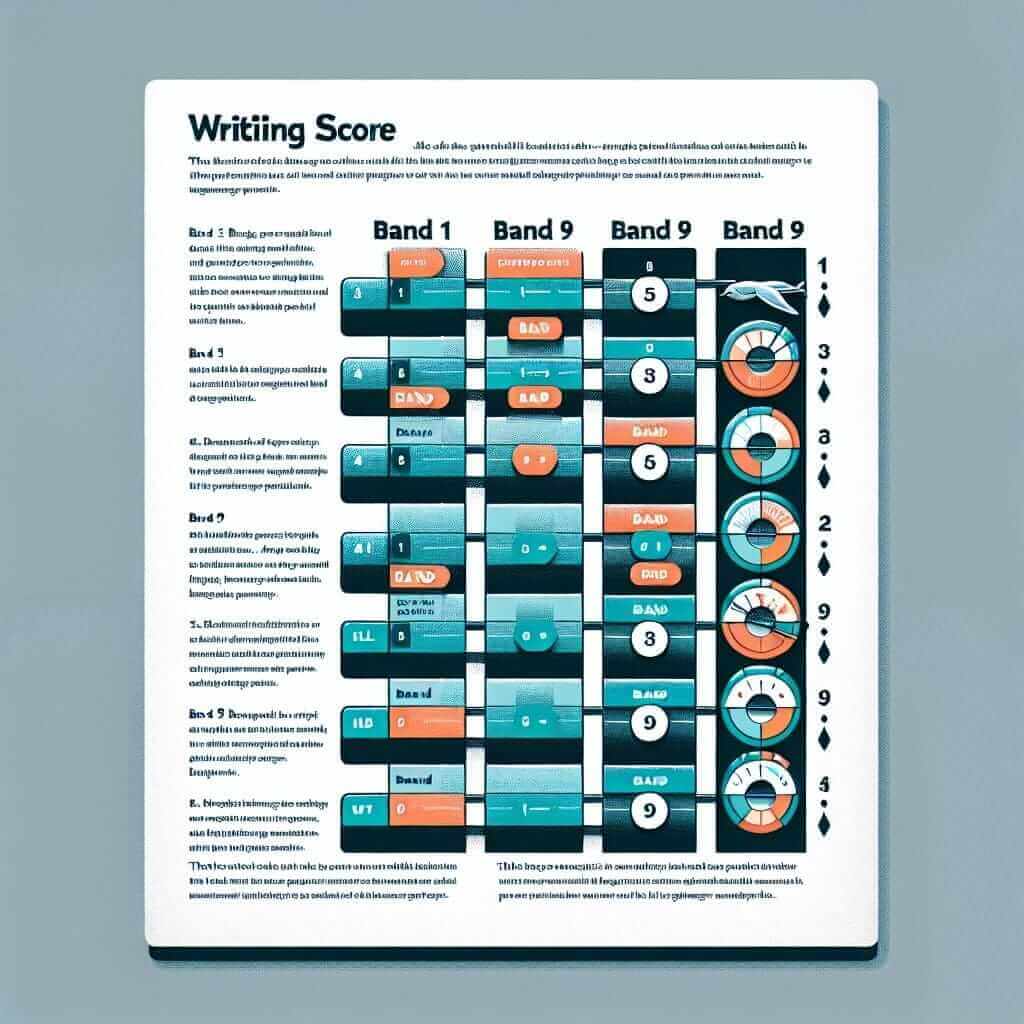As an IELTS instructor with over two decades of experience, I’ve encountered countless students who find the IELTS Writing test particularly daunting. One of the most frequent questions I receive is, “How are IELTS Writing scores calculated?” Understanding this intricate process can be incredibly empowering, providing valuable insights to help you excel on your test day.
Deconstructing the IELTS Writing Score
The IELTS Writing test assesses your ability to articulate ideas coherently, demonstrate a wide range of vocabulary, employ accurate grammar, and structure your writing effectively. Two separate tasks, Task 1 and Task 2, evaluate these skills, each contributing 50% to your final Writing band score.
The Four Pillars of Assessment
Both Writing tasks are meticulously marked against four equally weighted criteria:
1. Task Response (or Task Achievement for Task 1): This criterion evaluates how thoroughly and accurately you address the task requirements. It assesses your ability to present a clear position, develop your arguments logically, and support your ideas with relevant examples.
2. Coherence and Cohesion: This focuses on the overall clarity and fluency of your writing. It evaluates how effectively you organize your ideas, use paragraphing, and employ linking devices to guide the reader smoothly through your writing.
3. Lexical Resource: This criterion assesses your vocabulary range and accuracy. It considers your ability to use a variety of words and phrases appropriately and effectively to convey your ideas.
4. Grammatical Range and Accuracy: This final criterion evaluates your grammar skills. It assesses your ability to use a variety of sentence structures accurately and demonstrate a good command of English grammar.
The Role of Certified Examiners
Each of your writing tasks is assessed by a certified IELTS examiner who applies these four criteria consistently. These examiners undergo rigorous training and standardization to ensure fairness and accuracy in scoring.

De-Coding the Band Scores
The IELTS Writing band score ranges from 0 to 9, with 9 being the highest. Your scores for Task 1 and Task 2 are averaged to determine your overall Writing band score.
- Band 9 (Expert User): This score demonstrates full operational command of the language with complete accuracy, fluency, and appropriate style.
- Band 7 (Good User): A Band 7 indicates operational command of the language despite occasional inaccuracies and instances of inappropriate language.
- Band 5 (Modest User): A Band 5 signifies partial command of the language, with noticeable errors and limited flexibility in language use.
Strategies for Success: Tips from an Experienced IELTS Tutor
While the scoring process may seem complex, understanding the key assessment criteria can significantly improve your writing. Here are some practical tips to boost your score:
- Analyze the Task: Before you start writing, carefully analyze the task requirements and ensure you fully understand what is being asked.
- Plan Your Response: Spend a few minutes planning your essay before you start writing. This will help you organize your thoughts and structure your response logically.
- Use a Variety of Vocabulary: Demonstrate your range by incorporating a variety of vocabulary relevant to the topic. However, prioritize using words you are confident using accurately.
- Focus on Accuracy: While using complex grammar can be impressive, prioritize accuracy. It’s better to use simpler structures correctly than to make errors with complex ones.
- Proofread Carefully: Reserve a few minutes at the end to proofread your work carefully for any spelling, grammar, or vocabulary errors.
In Conclusion
Mastering the art of IELTS Writing requires understanding the scoring criteria and applying effective strategies. By focusing on the four key assessment areas and practicing consistently, you can achieve your desired band score. Remember, the key to success lies in understanding the game and playing it strategically.